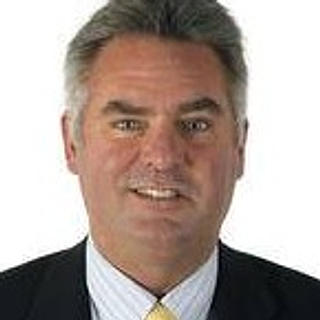Sept. 22, 1977 – Reggie Jackson: The straw that stirred the Yankees
- Sal Maiorana
- Sep 22, 2017
- 4 min read

It was 9 o'clock on the evening of June 18, 1977, rain was pouring down outside the downtown Boston hotel that was serving as the Yankees' weekend home base, and Reggie Jackson was in his room sipping white wine with teammate Mike Torrez commiserating about what was surely the worst day of his baseball life amidst what had been the worst year of his professional career.
There was a knock on the door, and when Jackson answered, there were three New York sports writers seeking a few moments of Jackson's time.
Jackson, a supreme egomaniac who never saw a notebook, tape recorder or microphone he didn't like, could have slammed the door in their faces. He could have told the writers to go away, that his mood was gloomier than the weather and he had nothing to say. But he did have something to say, and it occurred to him that if he didn't speak his piece, Yankee manager Billy Martin would get the last word in the morning papers. That would be unacceptable.
So, Jackson welcomed the writers into his room and for the next hour shared his side of the rhubarb that had occurred earlier that afternoon at Fenway Park when he and Martin nearly came to blows in the Yankee dugout. “The man took a position today to show me up on national television, and everyone could see that,” Jackson said.
That scene - Martin trying to fight his way through the clutches of Yankee coaches Elston Howard and Dick Howser so he could take a swing at Jackson - lives forever because it defined this Yankee team. They were more dysfunctional than the Trump presidency, but it didn't matter because their talent, their grit, and their will to win – sometimes in spite of each other - enabled them to rise above the constant clashing of egos and internal bickering.
The trouble began following New York's four-game loss to the Big Red Machine in the 1976 World Series. Steinbrenner was embarrassed being swept by Cincinnati and, thirsting for a championship, he determined Jackson was the man who could bring one to the Bronx. He outbid everyone for the services of Jackson, who at the time was the most coveted free agent in baseball history.

In Steinbrenner's eyes Jackson was a true superstar, a box office draw who would not only have the fans flocking to Yankee Stadium in record numbers, but who would virtually guarantee the first World Series title since 1962. Steinbrenner had sipped champagne when his team won the AL pennant in '76, now he wanted to gulp the bubbly, and Jackson was the player who would enable Steinbrenner to do that.
From the day the signing was announced, though, there was no chance for peace and harmony within the team because both of its leaders, Martin and captain Thurman Munson, were incensed by the acquisition. Martin wanted no part of Jackson. He had never managed him, but from afar he didn't like Jackson's style, his enormous ego, or his endless bantering with the media. Martin thought Jackson was the ultimate “me” guy. He also didn't like having someone in the locker room who was more of a presence than he was.
And Munson thought he should be the Yankees' highest-paid player, and in fact, he said Steinbrenner had made that promise to him. With Jackson on board, Munson no longer held the top rung on the Yankee payroll.
Naturally, the majority of the players followed Munson's lead, and Jackson received a cool “welcome” to the ballclub. Throughout the spring Reggie was miserable, and then in May the heat was really cranked up when the infamous Sport magazine article was published in which Jackson was quoted as saying “You know, this team ... it all flows from me. I've got to keep it all going. I'm the straw that stirs the drink. It all comes back to me. I should say me and Munson, but really, he doesn't enter into it. He's being so damned insecure about the whole thing. Munson thinks he can be the straw that stirs the drink, but he can only stir it bad.”
All that was left was for hell to break loose, and hell finally broke loose that day in front of a national TV audience in Boston.

To his credit, Jackson rose above the turmoil and wound up having a very good first season in New York, Billy be damned. He finished with a slash line of .286/.375/.550 as he compiled 32 home runs, 110 RBI, 39 doubles, and 17 stolen bases.
And then, of course, he capped it all off with his iconic performance in the World Series triumph over the Dodgers, hitting three home runs in the clinching Game 6 victory at Yankee Stadium, one of the greatest nights in the history of the franchise.
One of the best quotes of the year, one that summarized the first season of Reggie so perfectly, was uttered by third baseman Graig Nettles: “When I was a kid I didn’t know whether I wanted to be a ballplayer or run off and join the circus. Now I've been able to do both.”






Comments